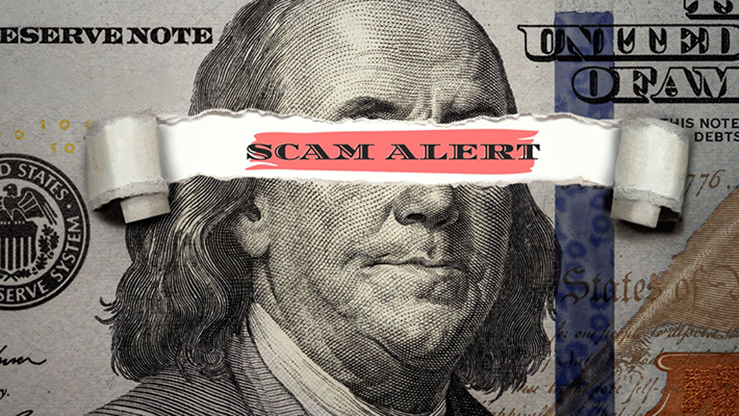Beginning October 1, 2023 (and after more than three years of relief), more than 44 million Americans will be on the hook to start making payments on their student loans. While this news may cause financial stress for many borrowers, it has also given rise to a troubling trend—an increase in scams that prey on vulnerable individuals seeking relief from their student loan debt.
The Growing Problem
With millions of Americans grappling with student loan debt, it’s no surprise that scammers see this as an opportunity to exploit vulnerable individuals. The promise of student loan forgiveness can be enticing, and scammers are capitalizing on this desperation. These scams take various forms, but they all share a common goal: to steal your money or personal information. Here are some common tactics used by scammers:
- Upfront Fees. Scammers often ask for an upfront fee to help you access loan forgiveness programs or to consolidate your loans. However, once you pay, they disappear, leaving you with less money and the same amount of debt. Legitimate programs will not charge fees for application or enrollment.
- Guaranteed Forgiveness. Be cautious of any organization claiming to guarantee student loan forgiveness. Eligibility for forgiveness is often based on specific criteria, such as income, employment, or public service, and cannot be guaranteed. Scammers promise quick and guaranteed forgiveness without considering your eligibility—and they often use official-sounding language to make their offers seem legitimate.
- Phishing Scams. Scammers send emails or texts that mimic official communications from government agencies or loan servicers, that urge you to click on links and provide your personal information (like your SSN, account number, date of birth, FSA ID number and password, address, or account balance). In reality, the Department of Education, government-contracted collection agencies, and your official student loan servicers will never reach out to you asking for personal details. Always verify the sender’s authenticity and avoid clicking on suspicious links.
- High Pressure. Companies that sell student debt relief are typically staffed by salespeople who earn a commission on the number of customers they sign up. So, it’s no surprise that they use high-pressure sales tactics to push you into making hasty decisions. Legitimate programs allow you time to research and consider your options.
Ways to Avoid Student Loan Forgiveness Scams
- Verify, verify, verify. Always double-check the information provided by anyone claiming to help with loan forgiveness. Government programs typically have clear eligibility requirements and application processes, so familiarize yourself with official websites and documents.
- Never pay upfront. Legitimate loan forgiveness programs do not charge upfront fees. If someone asks for payment before helping you, it’s likely a scam.
- Protect Your Personal Information. Be cautious about sharing personal information over the phone or by text or email. Government agencies or reputable lenders will never request sensitive information via these channels.
- Do Your Homework. Research any company or organization offering loan forgiveness assistance. Check for reviews and complaints, and verify their credentials before engaging with them. Look closely at the communications and keep an eye out for typos, improper grammar, incomplete sentences, unusual capitalizations, or odd-looking logos. These errors are often a sign of a scam.
- Contact Official Channels. If you’re unsure about the legitimacy of an offer, reach out directly to your loan servicer, the Department of Education, or the relevant government agency to verify the information. If you think you have been scammed, contact your bank or credit union, and file a complaint with both the Federal Trade Commission and the Consumer Financial Protection Bureau.
- Stay Informed. Keep yourself updated on the latest news and announcements regarding student loan forgiveness. Being well-informed will help you differentiate between legitimate programs and scams.
While the prospect of student loan forgiveness may provide hope for many, it’s crucial to remain vigilant and cautious in the face of rising scams. To avoid student loan scams, steer clear of companies that approach you or show up in search engine ads—even if you are contacted directly by a person or entity that seems legitimate. Remember that borrowers do not have to pay upfront for help managing their student loans. Keep in mind that legitimate servicers and agencies will not ask for your login information. By staying informed and cautious, you can avoid falling victim to these harmful scams and work toward achieving financial stability.
